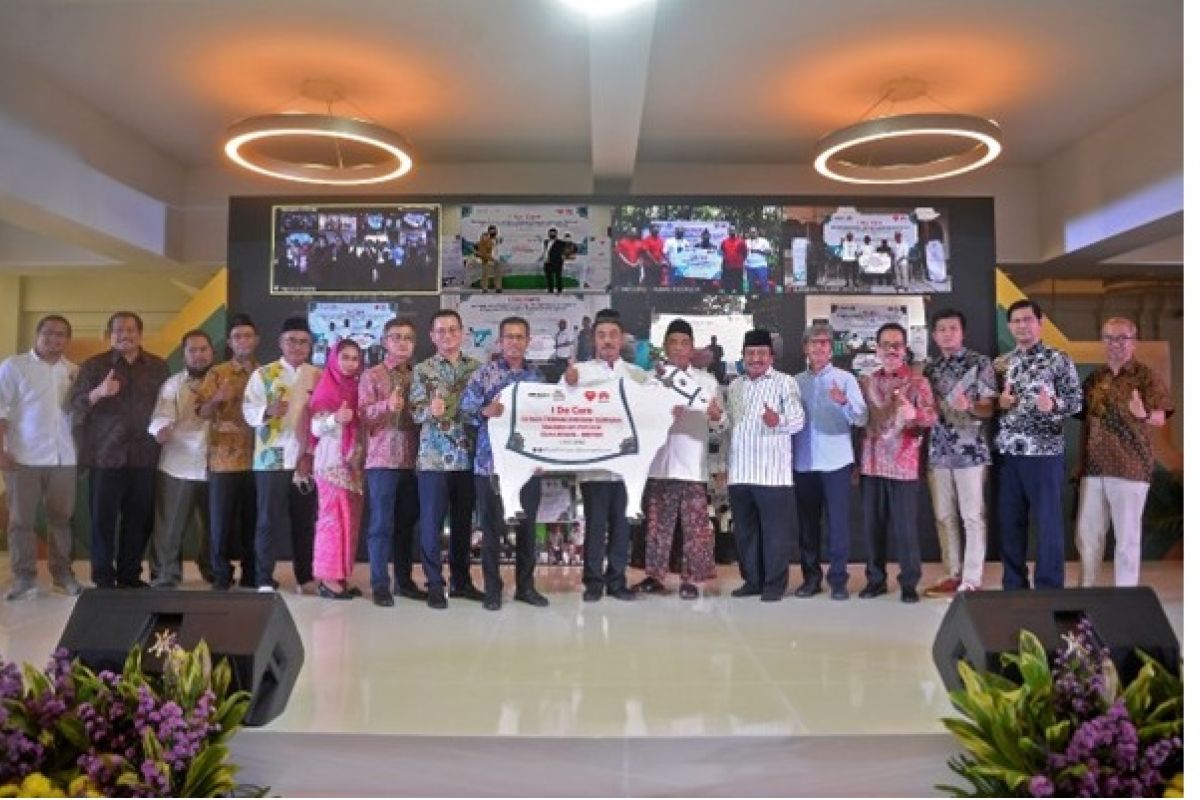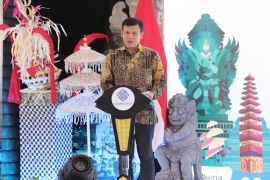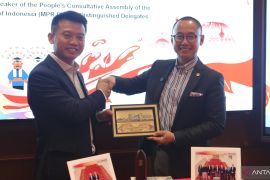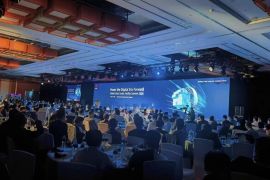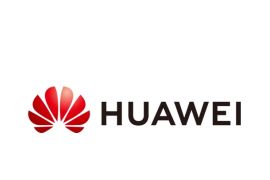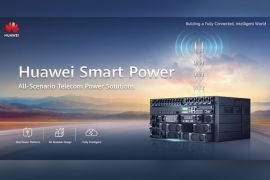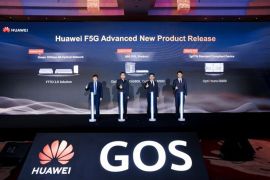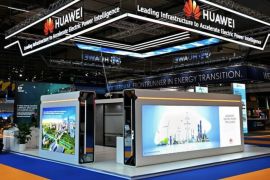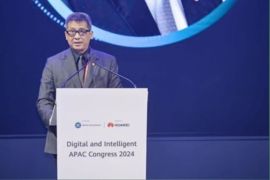Indonesia, Jakarta (ANTARA) - Chairman of the Sharia Economic Community (MES) Erick Thohir commended Huawei's efforts in encouraging the strengthening of Indonesia's sharia economic ecosystem through optimizing digital technology. Erick appreciated Huawei's CSR program in the form of donating sacrificial animals to Muslim communities in 13 cities in Indonesia which was symbolically held at the At-Thohir Mosque in Cimanggis, West Java, Thursday (7/7/2022). As a country with the largest Muslim population in the world, Erick assessed that Indonesia should be able to become a global player in the halal industry.
"Indonesia has so far been one of the countries with the world's largest consumption of the halal industry, but in the top 10 world halal industry producers there are none." said Erick.
Erick, who is also carrying out the mandate as Minister of State-Owned Enterprises, continues to encourage the potential of the halal industry by establishing Bank Syariah Indonesia (BSI) which has total assets of Rp360 trillion (US$24 billion) and is immediately to become the seventh-largest bank in Indonesia.
"The goal is clear [to make] Indonesia is a producing country for the halal industry, not simply being a market for other countries. As a big nation, we must not only become ripples but must become the waves in the world economy," continued Erick.
As a big nation, said Erick, Indonesia should be able to optimize natural resources and a large market for economic growth and the welfare of its own people. Erick said that Indonesia is blessed with all the advantages needed to build a sharia economic ecosystem that is inclusive, effective, and has resilience in mitigating various crises.
"The Islamic economic ecosystem has proven to be resilient in the face of various crises, including pandemics, and we want to build an increasingly robust ecosystem with multi-helix cooperation between the government, community, and industry," continued Erick.
Erick said that Indonesia must also be able to optimize the potential of the digital economy which is predicted to reach Rp4,500 trillion in 2030 or eight times larger than Indonesia's GDP or become the largest in Southeast Asia. Erick also encouraged the Islamic economic ecosystem to not be left behind in venturing into digital economic opportunities in the future.
"The spirit reflected in Huawei's initiative today is expected to inspire all parties to participate, build synergies, and support the Islamic economic community in the country so that they can contribute more to the global economy," Erick said.
Minister of Religious Affairs H. Yaqut Cholil Qoumas remarked, “I appreciate Huawei for this initiative to build the world anew with the spirit of sharing and caring. This program is also contextual and future-oriented as our world is now facing a plethora of challenges in ICT developments that require the acceleration in digital transformation, including that in the digital sharia economy.
The transformation in the digital sharia economy will enhance the capacity and optimize the development of the sharia economy in Indonesia, home to the world’s largest Muslim population. Caring and digital transformation will play a chief role to ramp up Indonesia’s contribution to a global stage.”
Jacky Chen, CEO of Huawei Indonesia said, “Huawei always believes technology can empower society. Technology can push innovators to keep creating new solutions. Indonesia’s sharia economic community should be able to take full advantage of technology in order to become the backbone of economic recovery. Guided by the Huawei “I Do” commitments, we would like to contribute more to Indonesia and create value to build up a more competitive Indonesian ecosystem.
The critical role of digital startups in strengthening the digital economy, in general, has motivated Huawei to build a new mission to help advance local startups through the Huawei Spark accelerator program. Huawei launched this program simultaneously in the Asia Pacific last year. In Indonesia itself, Huawei Spark has found a number of sharia-oriented startups that present innovative solutions in the realm of micro-lending that comply with sharia principles, halal market workshops, and others.
Jacky asserted,"In line with Huawei's 'I Do' commitment which aims to create added value to contribute more to Indonesia's progress, Huawei continues to strive to strengthen network infrastructure, prepare digital talent, and empower digital startups engaged in the Islamic economy. Thanks to the collaborative spirit of ecosystem partners, be it government, community, and industry, we are confident that Indonesia is on the right track to achieve its vision of becoming one of the world's leading digital economic powers by 2045.”
The donation ceremony was also attended by representatives from Muslim communities, academia, and industry associations, including the Indonesian Association of Internet Providers, the Indonesian Association of Information and Communication Technology Business (Aptiknas), and the Indonesian Telematics Society (Mastel), and The Telecommunication Network Providers Association (APJATEL).
Dr. H. Amirsyah Tambunan, M.A., Secretary-General of the Indonesian Ulema Council (MUI), said, “The acceleration of the halal industry and the development of halal tourism are the main pillars of national economic growth in the post-pandemic scenario. MUI plays a key role to push the competitiveness of Indonesia's halal ecosystem to support Indonesia to become the center of the world's halal economy by 2024. In collaboration with technology ecosystem partners, especially Huawei, we can establish halal infrastructure in accordance with sharia principles, push the regulations that side with the halal industry and tourism, and nurture culinary businesses that promote small and medium-scale enterprises.
Speaking on the donation given by Huawei, K.H. Zulfa Mustofa, Deputy Chairman of Nahdlatul Ulama, said, “Our religion teaches us to give back to others whatever we received. We can say that what Huawei has done today is in sync with the teaching.”
Meanwhile, Dr Ma'mun Murod Al-Barbasy, MSi from PP Muhammadiyah, said,”This Qurban exhibits the real face of our religious practices, which brings about social value and humanity. Therefore, this Qurban activity organized by Huawei Indonesia reflects well both values.”
On the sidelines of the donation ceremony, Huawei also organized a discussion, titled Digital Transformation in Sharia Economy, featuring Muhammad Neil El Himam, M.Sc., Deputy for Digital Economy and Creative Products with the Ministry of Tourism and Creative Economy, Ir. Eddy Satriya, M.A., Deputy for Micro Enterprises, Ministry of Cooperatives and Small Medium Enterprises, Muhammad Hamudi Bin Abdul Khalid, CEO/Co-founder Orpheus Capital, and Muhammad Dennisa, Program Director of Huawei Spark Malaysia as the panelists, and Heru Sutadi, Executive Director of Indonesia ICT Institute as the moderator.
During the panel discussion, Muhammad Neil El Himam, M.Sc., Deputy for Digital Economy and Creative Products with the Ministry of Tourism and Creative Economy, emphasized that the government prioritized Penta helix synergy in developing an ecosystem for the digital economy and sharia economy. “We hope technology support from global ICT players, especially Huawei, would enable tourism and creative economy players in their digital transformation to a better use of digital tools and platform.”
Indonesian digital economy is forecast to grow by eight times by 2030 and contributes 18 percent to gross domestic product (GDP).
To bolster digital economy growth, the digital transformation involving local SMEs and cooperatives is crucial as Ir. Eddy Satriya, M.A., Deputy for Micro Enterprises, Ministry of Cooperatives and Small Medium Enterprises, said,”Indonesia aims to expedite the onboarding digitalization of SMEs and cooperatives from currently 17.6 million SMEs and 202 cooperatives by January 2022, to 30 million SMEs and 500 cooperatives by 2024. We expect Huawei as a leading global ICT player would continue to support the ecosystem along with other ecosystem partners to achieve the target.
Meanwhile, Muhammad Dennisa, Program Director of Huawei Spark Malaysia, said that the Spark program forges close collaboration between the government and the community that supports the growth of the local economy through tech start-up development. “The development aims to provide a sustainable and conducive environment for tech start-ups, increase the employment rate and talent development, to scale up global competitiveness of the local start-ups, to facilitate investment access and corporate match up to global markets.”
The program covers initiatives to allow start-ups to sell their solutions to Huawei to take advantage of $123 billion business opportunities, enable them to sell with Huawei’s global sales force to access 197 of Huawei’s Fortune 500 company partners while enabling them to sell through Huawei App Store and Cloud marketplace which has over 600 million users.
Reporter: PR Wire
Editor: PR Wire
Copyright © ANTARA 2022
